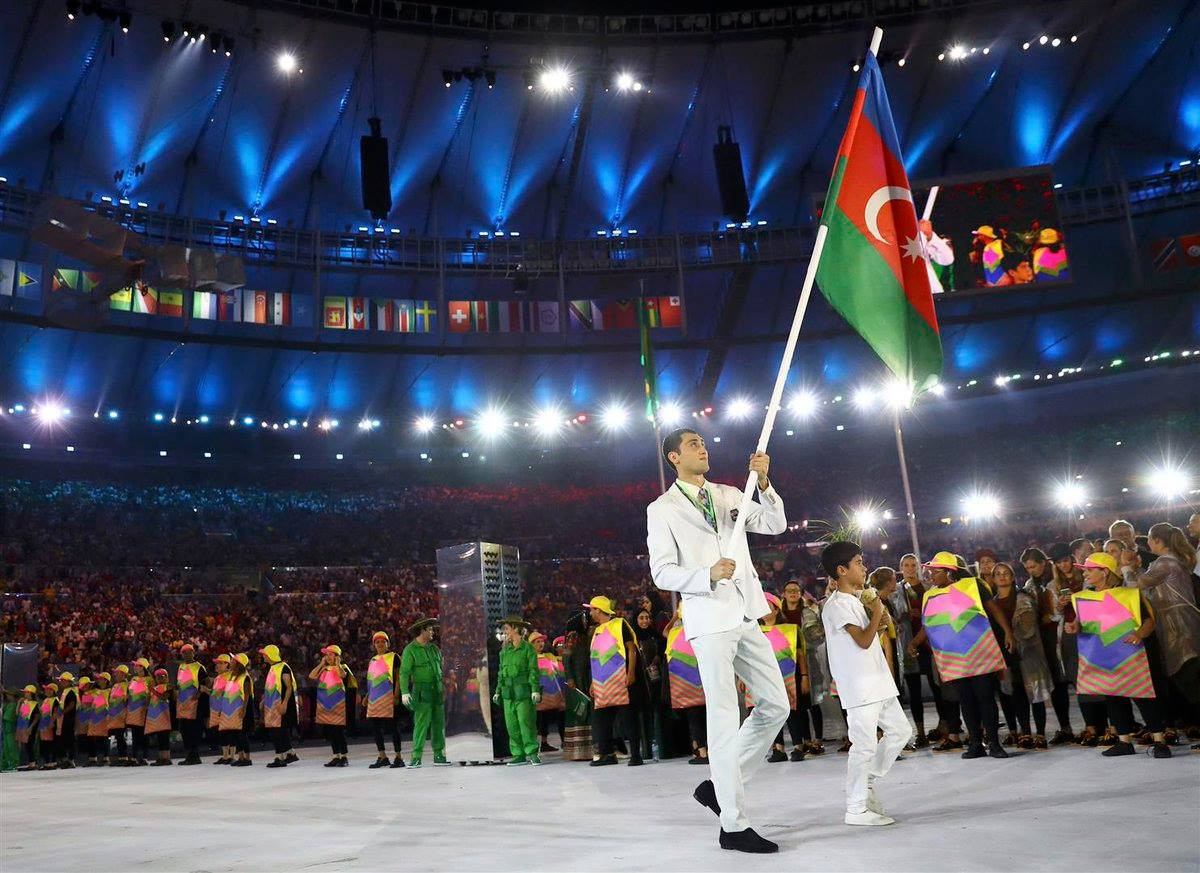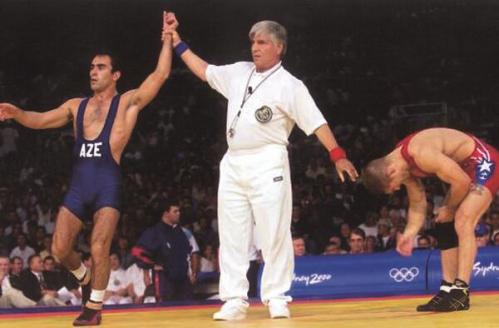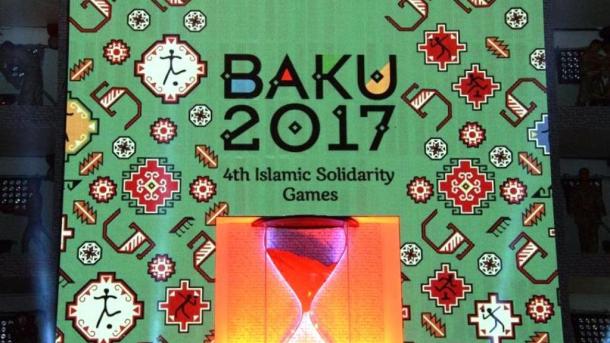SPORT HISTORY

Just like the ancient history of the people of Azerbaijan, the history of physical education and sports has also started a long time ago. There have been a number of inventions significantly affecting the development of society in the Stone Age. The invention of the “bow and arrow” among these discoveries is a clear example.
We can come across writings and dances reflecting various physical movements of people yet two thousand years BC when bronze instruments were being used in Azerbaijan (Bronze Period). Ancient petroglyphs of Gobustan are a bright example of this. Numerous images and drawings on rocks depict hunting scenes, animal figures, dances, and other physical movements of people.
The great poet of Azerbaijan Nizami Ganjavi, who lived in the 12th century, had described the braveries of the heroic sons of the people of Azerbaijan and particularly the mastery of wrestlers in his famous poems. There is plenty of information about physical movements in the cultural monuments related to written and verbal folk creativity of the ancient East.
Such types of sports as gymnastics, swimming, athletics, heavy athletics, and football started to develop in Baku at the beginning of the 1900s. A school of swimming was established in Baku in 1910 by a teacher of Baku Gymnasium V. Gricbovski. The life of another teacher from Baku Gymnasium Leonid Romanchenko is also remarkable in this regard. In 1912 a teacher from Baku Gymnasium Leonid Romanchenko swam 48 kilometers in the Caspian Sea in 24 hours 20 minutes. This was an unseen result for open sea marathon participants of that time. Thus Romanchenko passed the record of the former record holder Burgess, who had swum across the English Channel. However, till 1917 such results belonged to individual sportsmen and nobody was helping these amateur sportsmen to improve their mastery. After this event, the number of people going to Baku swimming school was more than 200. In 1920 such societies as “Sokol” and “Unita”, “Automator”, “Vodnik”, “Rechnik” etc (these societies were transformed to centers of physical education after the revolution) existed in our country. Championships between cities on different types of sports started to be organized starting from 1921. Trade unions of Azerbaijan started to support physical education and sports activities (1922). For the first time in Baku a school for training teachers of physical education was opened (1923). Country boxing (1920), football (1921), weightlifting (1925), Greek-Roman (1924), and free-style wrestling (1928) were held in Azerbaijan. In the May session of 1936, the USSR People’s Commissars Union made a decision about creating voluntary sports societies. According to the order of the Soviet Union Trade Unions Central Department, voluntary sports societies of trade unions were established in 1936. Different children’s sports schools were organized attached to sports societies were established with the order of Azerbaijan LKGI CC. There was 8 children’s sports schools (1941) and 15 voluntary sports society (1958). Currently, there are 14 sports societies in our country.

The history of the Olympic Movement (OM) in Azerbaijan can be conventionally divided into three parts: the period of the sportsmen of Azerbaijan participating in the Olympic Games as a part of the USSR national team (1952-1988), a part of the national team of Commonwealth of Independent States (CIS) (1988-1992) and the period after Azerbaijan joined the International Olympic Movement (IOM) as an independent country. As a part of the USSR Olympic team, 46 athletes of Azerbaijan participated in 9 Olympic Games and won 10 gold, 11 silver, and 7 bronze medals. The silver medal that the free-style wrestler R. Mammadyarov won in Helsinki Olympic Games in 1952 can be evaluated as the first success of Azerbaijani athletes in the Olympic Games. The successful performance of Y. Konovalov, A. Kornelyuk (athletics), I. Riskal, V. Lantratova (volleyball), V. Mineyev (modern pentathlon), A. Ibrahimov (free-style wrestling), R. Shabanova, L. Shubina, L. Savkina (handball), I. Mammadov, B. Koretski (fencing), I. Ponamaryov (football) and others increased the prestige of Azerbaijani athletes. Even though Azerbaijan was represented with only 5 athletes in the team of the Commonwealth of Independent States (CIS) in the 1992 Barcelona Olympic Games, two of our sportsmen N. Huseynov (judo) and V. Belinski (gymnast) gained very high results and were honored with the name of Olympic champions. The establishment of NOC and its recognition by IOC in 1992 also started a new period in the Olympic Movement history of our country. For the first time in 1996, Azerbaijan performed under the tricolor flag of the independent Republic of Azerbaijan in the Atlanta Olympic Games with its national Olympic team consisting of 23 people. Taking 61st place in these Games with 197 participants can be considered a sports success of the young Republic of Azerbaijan. And the silver medal that the free-style wrestler N. Abdullayev won in these games is the first medal of the National Olympic Team of the Republic of Azerbaijan in the Olympic Games.
The President of the NOC Ilham Aliyev managed to make a significant positive breakthrough in the activities of the Committee, stimulated the rapid development of the Olympic movement in our country, and maintained its active participation in the movement of the International Games. With its purposeful and consistent performance about the development of the Olympic movement and sports in our country, Azerbaijan NOC gained important achievements in a short time. The Decree of the President of the Republic of Azerbaijan on January 20, 1998, aims to train our athletes for XXVII Summer Olympic Games to be held in Sydney on a high level and ensure their participation in international competitions opened new horizons for more expedient activities of the NOC. As a result of timely and state-level preparation works for the Games 31 sportsmen from Azerbaijan on 10 types of sports participated in XXVII Summer Olympic Games (2000).

The sportsmen from Azerbaijan demonstrated a very high level in XXVII Summer Olympic Games in Sydney, Australia (15.09.2000). Z. Meftahaddinova (trapshooting) and N. Abdullayev (freestyle wrestling) got gold medals and V. Alakbarov (boxing) got a bronze medal. Taking 34th place among 199 countries from around the world and 23rd place among the European countries in Sydney Olympics was a big victory for our sportsmen. The Decree of the President of the Republic of Azerbaijan Ilham Aliyev about “Preparation for XXVIII Summer Olympic Games” laid the foundations for organizing and ensuring the training of the sportsmen from Azerbaijan for XXVIII Summer Olympic Games on a higher and more organized level (05.06.2013). 38 out of 130 sportsmen who started training for the XXVIII Summer Olympic Games got the honor of participating in the Games. 36 of them were given the right to participate in the Games with a license and 2 sportsmen got special permission with the Order of the International Federation of Swimming (wild card). Our country was represented in the XXVIII Summer Olympic Games with 38 sportsmen on 12 sport types. Compared to XXVII Sydney Olympic Games our sportsmen had joined the Games 3 new types of sports — Rhythmic gymnastics, taekwondo, and fencing, and even more sportsmen had participated in the Games.
With 1 one gold and 4 bronze medals, the national team of Azerbaijan got 37th place for the number of medals and 50th place for the quality among 202 participating countries in XXVIII Summer Olympic Games. Among our national team members were the gold medal of F. Mansurov (Greek-Roman) and the bronze medals of I. Ashumova (sport shooting), Z. Meftahaddinova (trapshooting), A. Mammadov, and F. Aslanov (boxing) played a special role in achieving these results. At the XXIX Summer Olympic Games, the national Olympic team of Azerbaijan 12 — wrestling (freestyle wrestling (7), Greco-Roman wrestling (6) and women's wrestling (3)), taekwondo (1), gymnastics (group exercises team 6, individual competitions 2), boxing (2), shooting (1), equestrian (1), swimming (2), judo (6), athletics (2) and weightlifting (5) were represented by 44 athletes. In this competition, our representatives differed from other Olympic Games both in the number of athletes and the number of medals won. For the first time at the Olympic Games, our team won medals in all three disciplines. It is interesting that our athletes for the first time tested their strength in the Olympic equestrian competitions and group exercises in rhythmic gymnastics. In addition, Beijing 2008 became the first Olympics in which our female wrestlers will compete. At the XXIX Summer Olympic Games, the national team of Azerbaijan with 7 medals (1 gold, 2 silver, 4 bronze) took 27th place among 204 countries in terms of the number of medals and 39th place in terms of the medal tally. At the XXX Summer Olympic Games, 53 members of the national Olympic team of Azerbaijan were represented in 16 sports. For the first time, our athletes tested their strength in cycling, rowing, women's boxing, gymnastics. 10,957 athletes from 204 countries participated in the XXX Summer Olympic Games. The Azerbaijani Olympic team is in 30th place with 2 gold, 2 silver, and 6 bronze medals. At the XXXI Summer Olympic Games, 56 members of the national Olympic team of Azerbaijan were represented by 57 licenses in 17 sports. For the first time, our athletes tested their strength in triathlon, archery, canoe slalom, track cycling. At the XXXI Summer Olympic Games, the Azerbaijani Olympic team ranked 15th among 206 countries in terms of the number of medals and 39th in terms of medal count with 1 gold, 7 silver, and 10 bronze medals.
gh.jpg)
295 Azerbaijani sportsmen have participated in XV-XXXI Summer Olympic Games (1952-2012). At present, there are 43 Olympic sports complexes in Azerbaijan. One of the most important international competitions that introduced Azerbaijan to the world and did not cease to be discussed for a long time was the European Games, which we hosted in 2015. This is the first sports competition in its history, and 10,000 athletes from 50 European countries competed in 30 kinds of sports. The 17-day competition ended on June 28 at the Baku Olympic Stadium. The first place in the unofficial medal table was taken by the athletes of the Russian Federation.
After that, Azerbaijan signed an agreement to host a new Formula 1® Grand Prix in Baku in 2016 and hosted this major sporting event. It is planned to hold Formula 1 races in our country every year until 2023. In 2017, we watched another big tournament in our capital. The Islamic Solidarity Games was a multinational, multi-sport tournament. After gaining independence, the number of medals won by Azerbaijani athletes in European, world, and cup competitions continue to grow, and the main reason for this is the attention and care of the state towards sport.



